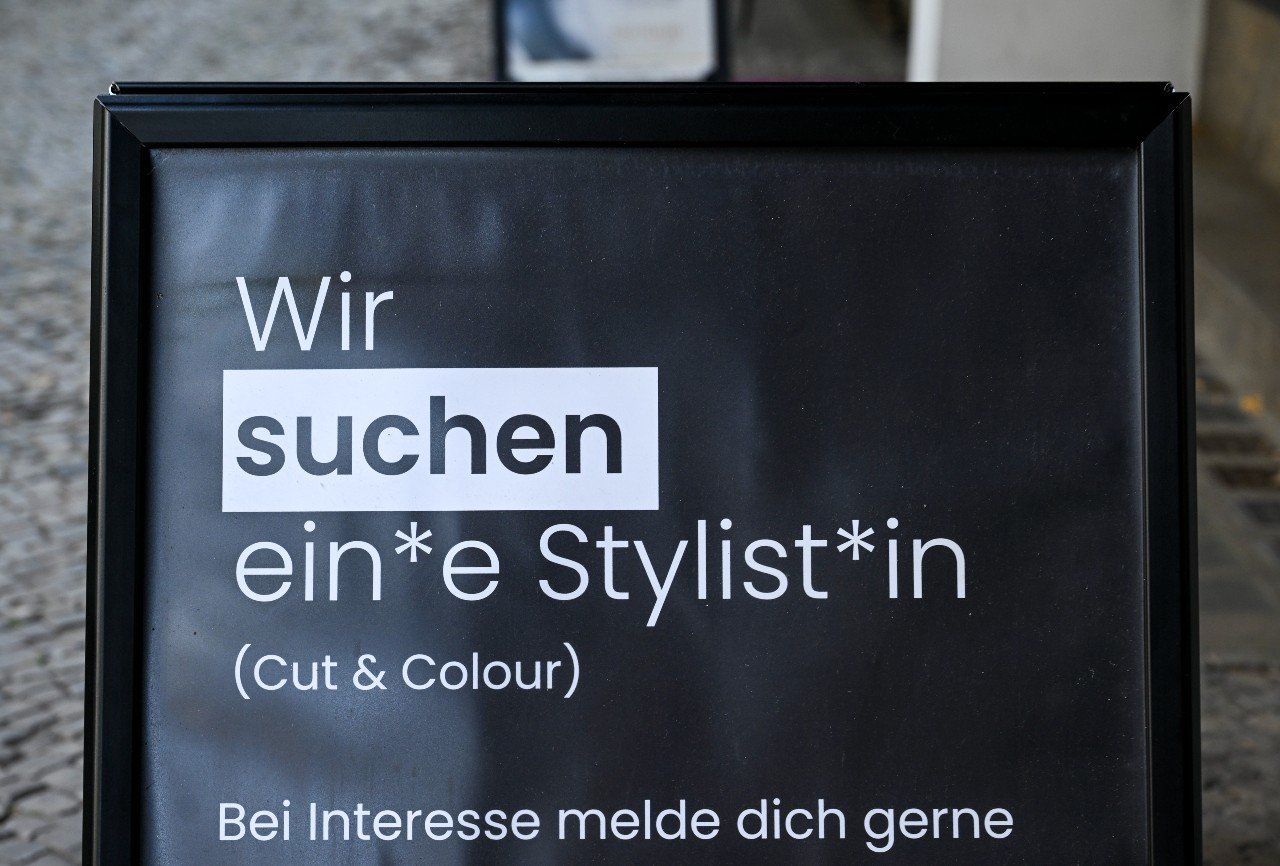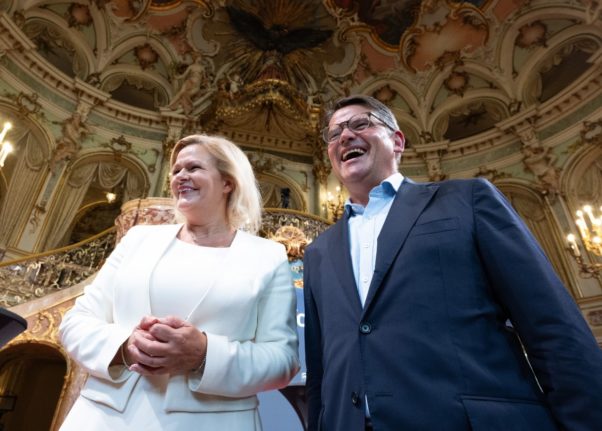After the Christian Democratic Union (CDU) party swept to a clear victory in the October 8th elections in Hesse, the centre-right party has been busily setting out its agenda for a new coalition with the centre-left Social Democrats (SPD).
With 34.6 percent of the vote, the conservatives are twice as a strong as their junior coalition partner, which landed in third place on 15.1 percent. The far-right AfD secured second place with an 18.4 percent vote share, but the so-called political “firewall” means that none of the mainstream parties are willing to work with them in a coalition.
Nevertheless, the coalition agreement – which was finalised on Thursday – marks a distinct shift away from the more socially progressive and climate-conscious days of the former CDU/Greens coalition.
Instead, the new ‘GroKo’ (grand coalition of the CDU and SPD) has described its style of government as both ‘Christian’ and ‘socially-minded’. This appears to mean opening the purse strings for things like education and housing while taking a tough line on crime and irregular migration.
Here are the key plans on the agenda:
Subsidies for property buyers
A key pledge in the CDU’s coalition plans was the distribution of so-called Hessengeld, which will subsidise the purchase of a new home for first-time buyers.
Under the plans, would-be homeowners will get a reduction in their property tax of up to €10,000 per adult and €5,000 per child. With property tax set at six percent in Hesse, this could equate to as much as €30,000 for a two-adult, two-child household buying a €500,000 home.
The coalition also wants to make the processes of obtaining land and planning permission easier for developers, to ensure that more homes get built more quickly.
READ ALSO: ‘Disastrous results’: Germany in shock after elections in Bavaria and Hesse
Compulsory Kita attendance
An age-old battle over comprehensive schools – or Gesamtschulen in German – has been put to one side, meaning Hesse will continue to have a segregated schooling system.
Instead, the new coalition plans to make the final year of nursery school compulsory. This is largely to correct a lack of German language skills among first-year pupils in primary schools.
Another change in the schooling system will be the legal entitlement to all-day care, which has been slow to roll out in the state of Hesse.

More police, doctors and teachers
To make Hesse a “strong state”, the new Grand Coalition will aim to recruit more police officers and expand the use of CCTV monitoring in public spaces, with artificial intelligence and facial recognition also playing a role.
In addition, the state government will increase its targets for hiring doctors in the state and ensure more places to study medicine are available at its universities.
With the state struggling with teachers shortages in its schools – just like most states in Germany – hiring more teachers is also a key goal.
Expansion of the motorways
Seven of thirty motorway expansion projects pitched by Transport Minister Volker Wissing (FDP) and rejected by the current state transport minister are expected to be revisited under the new CDU/SPD coalition.
This could mean that the controversial widening of the A5 motorway outside Frankfurt could be green-lit after all.
Solar panels and climate hardship funds
Though climate protection will seemingly play far less of a role in this coalition, the agreement does mention plans to promote solar energy with 100,000 new solar installations on roofs. The coalition also wants the state to be climate neutral by 2045.
Residents of Hesse will also get financial assistance if they’re at risk of hardship due to the obligation to exchange their old gas or oil heating systems.
On the wildlife front, hunters will be given more rights in the state – including the ability to hunt wolves.
READ ALSO: German government scraps exemption for over-80s in controversial heating law
No gender-neutral speech in schools and unis
One of the more controversial plans being pursued by the new government is the proposal to ban the use of gender-neutral speech in schools, universities, and on the radio.
With the German language usually forcing speakers to mention a specific gender when talking about professions – usually male by default – it has recently become more common for people to try and include women with various tactics like the ‘gender asterisk’ or Gendersternchen.

Proponents say this makes speech more inclusive and avoids giving the impression that doctors, for example, are all men.
However, some of the tactics – and particularly the use of punctuation like the asterisk in written German – remain controversial and would be subject to a ban under the coalition’s plans.
That said, they are likely to face fierce opposition from journalism associations in Hesse and may be standing on rocky legal ground.
Gendern: Why Germany still gets fired up about gender-neutral language
Deportations and payment cards for migrants
With the far-right AfD landing in second place in the last elections, tackling irregular migration and taking a tough line on asylum seekers is a central issue in the coalition agreement.
Plans include more consistent deportations, an increase in the number of contact points for processing migrants and pushing for more countries on the ‘safe land of origin’ list where asylum seekers can be taken to.
The coalition also want to put an end to cash payments for asylum seekers and instead give them payment cards to prevent them from sending money back home.
In addition, integration courses and German language courses will be obligatory in the future.
State elections: Why did the AfD do so well in Bavaria and Hesse?
What happens next?
The coalition agreement will get voted on by each of the respective parties and, if approved, ministerial posts will be doled out next year.
As the largest party, the CDU is expected to get eight posts while the SPD will take three.




 Please whitelist us to continue reading.
Please whitelist us to continue reading.
Member comments